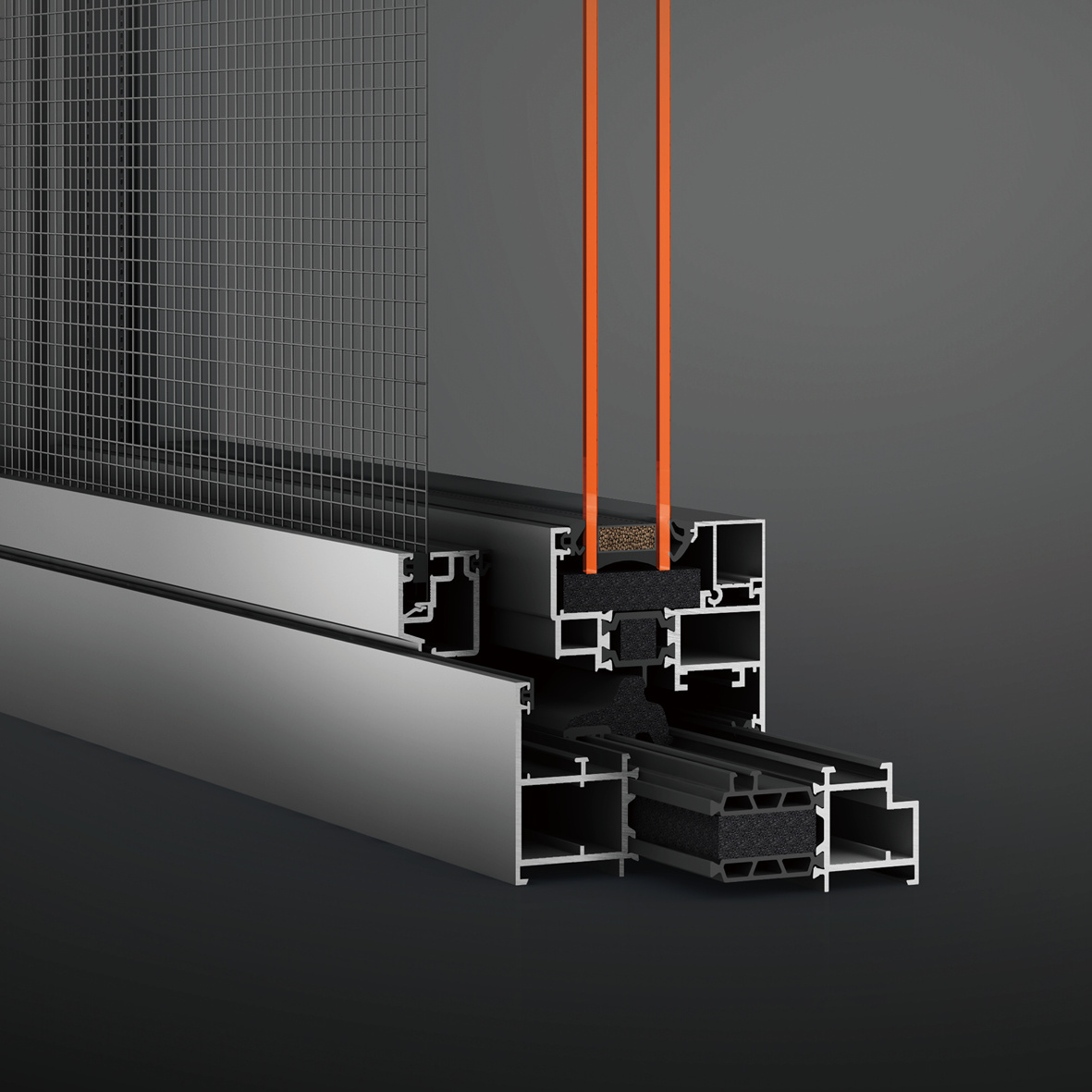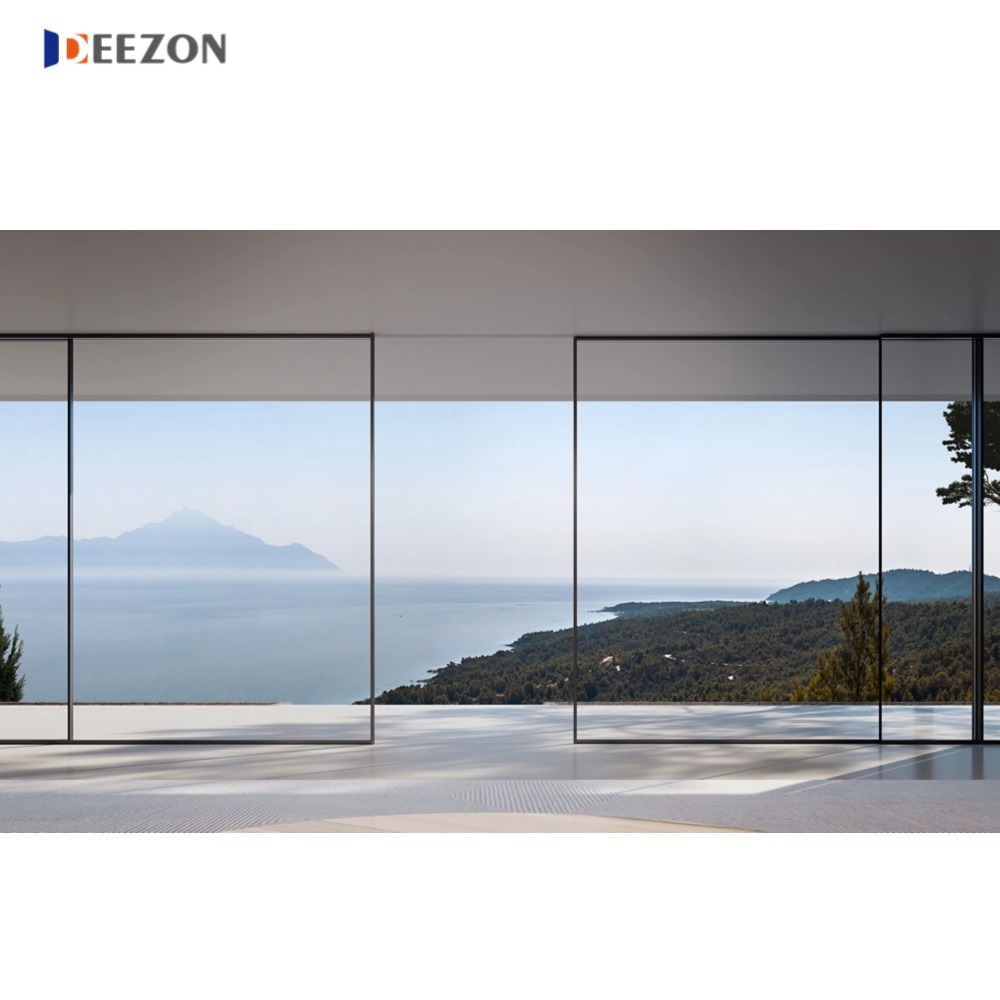Foshan Deezon Windows and Doors Co.,Ltd.
language
Why Choose Casement Windows for Maximum Ventilation and Energy Efficiency
Jul 31,2025

Why Choose Casement Windows for Maximum Ventilation?
Casement windows have become increasingly popular among homeowners seeking optimal ventilation solutions. These windows hinge at the side and open outward, allowing for improved air circulation and a unique aesthetic appeal. In this article, we delve into the myriad reasons to select casement windows for maximum ventilation and why they might be the perfect choice for your home.
Understanding Casement Windows: An Overview
Casement windows are designed to swing open like a door, providing an unobstructed view and significant airflow. Unlike other window types, such as sliding or double-hung windows, casement windows operate on a crank mechanism that allows for precise control over the angle at which the window opens. This design can significantly impact the ventilation and overall ambiance of your living space.
The Unique Design of Casement Windows
One of the most compelling features of casement windows is their design. Typically, these windows consist of a single pane or multiple panes of glass within a frame, which can be made from various materials, including wood, vinyl, or aluminum. The hinged design allows for a wide opening, maximizing airflow, especially in areas where natural breezes are prevalent.
Benefits of the Crank Mechanism
The crank mechanism of casement windows is not just for aesthetics; it also provides practical benefits. Homeowners can open casement windows to varying degrees, allowing for personalized ventilation. This feature is particularly useful in seasons when you want to let in fresh air without creating a draft or inviting in excess moisture.
The Advantages of Casement Windows for Ventilation
Casement windows offer numerous advantages that contribute to their appeal for ventilation purposes.
1. Maximum Airflow
The outward-opening design of casement windows permits a larger opening than most other window types. This feature allows for increased airflow, making them ideal for homes situated in areas with consistent winds. When fully opened, casement windows can significantly improve indoor air quality by facilitating the entry of fresh outdoor air.
2. Enhanced Energy Efficiency
Energy efficiency is a primary concern for many homeowners. Casement windows can contribute to reduced energy costs due to their tight seal when closed. The crank mechanism ensures that the window closes securely against the frame, minimizing air leaks and maintaining indoor temperatures. This feature can lead to lower heating and cooling expenses, making casement windows a cost-effective choice over time.
3. Versatile Design Options
Casement windows come in various styles and finishes to suit any architectural aesthetic. Whether your home is modern, traditional, or somewhere in between, there is a casement window design that complements your property's overall look. This versatility allows homeowners to maintain their home's character while improving functionality.
4. Unobstructed Views
Unlike sliding or double-hung windows, which often feature frames that can block views, casement windows offer an unobstructed sightline. When opened, these windows contribute to a seamless connection between indoor and outdoor spaces, allowing homeowners to fully appreciate their surroundings.
Key Considerations When Choosing Casement Windows
While casement windows have numerous benefits, several factors should be taken into account before making a decision.
1. Location and Orientation
The location and orientation of your home can influence the effectiveness of casement windows for ventilation. For example, homes in windy areas may benefit more from these windows, as they can catch breezes more efficiently. Conversely, if your home is situated in a less windy area, you may want to consider combining casement windows with other window types to ensure optimal ventilation.
2. Maintenance Requirements
Casement windows can require regular maintenance, particularly if they are made from wood. Homeowners should be prepared to repaint or refinish wood frames periodically to prevent deterioration. Vinyl and aluminum frames require less maintenance, making them an excellent choice for those seeking a low-maintenance option.
3. Installation Considerations
Proper installation is crucial for the performance of casement windows. Homeowners should work with experienced professionals to ensure that the windows are installed correctly, promoting optimal functionality and energy efficiency. Misalignment during installation can lead to air leaks and diminished performance.
Tips for Maximizing Ventilation with Casement Windows
To fully harness the benefits of casement windows for ventilation, consider the following tips:
1. Strategically Plan Window Placement
When designing your home or renovating, consider placing casement windows on opposite sides of a room or building. This placement allows cross-ventilation, where cool air enters through one window and hot air exits through another, creating a natural cooling effect.
2. Use Window Treatments Wisely
While window treatments can enhance privacy and aesthetics, they can also obstruct airflow. Choose lightweight curtains or blinds that can be easily adjusted to allow for maximum ventilation when needed.
3. Regularly Maintain Window Hardware
To ensure smooth operation of casement windows, homeowners should regularly check and maintain the crank mechanisms. Lubricating the hardware and tightening any loose screws can prevent operational issues and prolong the life of the windows.
Cost Considerations of Casement Windows
Understanding the cost implications of installing casement windows can help homeowners make informed decisions.
1. Initial Investment
The initial cost of casement windows can vary widely based on factors such as materials, size, and customization options. Generally, casement windows tend to be more expensive than traditional double-hung windows, but the investment can be worthwhile due to their energy efficiency and ventilation capabilities.
2. Long-Term Savings
While the upfront cost may be higher, the energy-saving benefits of casement windows can lead to significant long-term savings. Reduced energy bills and decreased maintenance costs can offset the initial investment over time.
Frequently Asked Questions (FAQs)
1. What are the main differences between casement windows and double-hung windows?
Casement windows open outward using a crank mechanism, while double-hung windows slide up and down. Casement windows typically offer better ventilation and energy efficiency due to their airtight seal when closed.
2. Are casement windows suitable for all climates?
Yes, casement windows can be suitable for various climates. However, their effectiveness may depend on wind patterns and local weather conditions. Homes in windy areas may benefit most from their design.
3. How do I clean casement windows?
To clean casement windows, open them fully and use a microfiber cloth or sponge with mild soap and water. Avoid using abrasive cleaners that can scratch the glass or damage the frame.
4. Can I install casement windows myself?
While it is possible to install casement windows yourself, it is often recommended to hire professionals for proper installation. Correct installation is crucial for optimal performance and energy efficiency.
5. Do casement windows offer good security?
Yes, casement windows can provide enhanced security. The locking mechanism is typically embedded within the frame, making it difficult for intruders to force open. Additionally, the design prevents easy access from outside when closed.
Conclusion
Casement windows are an excellent choice for homeowners seeking maximum ventilation and energy efficiency. Their unique design, combined with the practicality of the crank mechanism, allows for unparalleled airflow and aesthetic appeal. By considering factors such as location, maintenance requirements, and installation, homeowners can make informed decisions about incorporating casement windows into their living spaces. Ultimately, opting for casement windows can lead to a more comfortable and energy-efficient home environment, enhancing both your quality of life and your property’s value.







